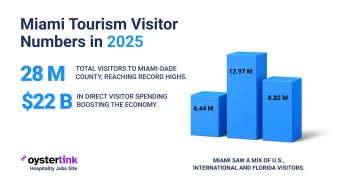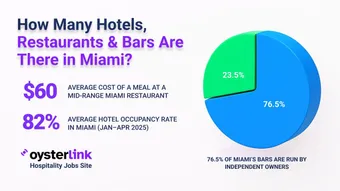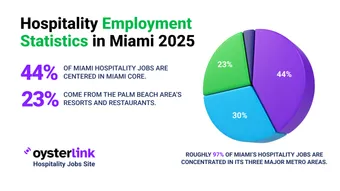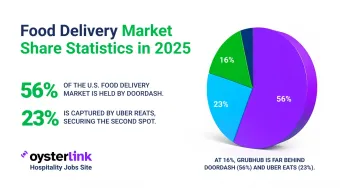Colorado Cost of Living: Quick Takeaways
- Housing Costs: The average rent for a one-bedroom apartment in Colorado is projected to reach $1,500 in 2025, showing steady growth over the years.
- Transportation Expenses: Public transit fares average $2.50 per one-way trip, with a monthly pass costing around $100. Fuel prices hover near $3.32 per gallon.
- Healthcare Costs: Monthly health insurance premiums for Silver plans are approximately $150, slightly higher than the national average.
- Income Levels: The median household income in Colorado is expected to be around $90,000 in 2025, reflecting steady economic growth.
Colorado’s vibrant economy and diverse landscapes attract many new residents annually.
This article breaks down the detailed cost of living in Colorado for 2025, covering housing, transportation, utilities, and more.
1. Housing Costs in Colorado
Housing is a major factor in the cost of living. The average rent for a one-bedroom apartment in Colorado has steadily risen over the past decade:
- 2010: Approximately $900
- 2015: Around $1,050
- 2020: Approximately $1,200
- 2024: Reached $1,431
- 2025: Projected to be $1,500
This consistent increase reflects growing demand and population growth in the state.
Those interested in working in Colorado’s hospitality sector might explore restaurants hiring in Denver as a way to tap into local job opportunities.
2. Homeownership and Real Estate Trends in Colorado
For homebuyers, the median home price in Colorado has also increased markedly:
- 2010: Median home price was approximately $250,000
- 2015: Increased to around $350,000
- 2020: Approximately $450,000
- 2024: Reached $556,482
- 2025: Projected to be $560,000
This price appreciation highlights the competitive real estate market and strong demand in Colorado.
3. Transportation Expenses in Colorado
Transportation costs in Colorado include various modes and expenses:
- Public Transit: One-way fares average $2.50, and monthly passes cost approximately $100.
- Fuel Costs: Gasoline prices average $3.32 per gallon in 2025.
- Vehicle Maintenance: Annual maintenance expenses for a vehicle average around $1,200.
These costs may vary depending on individual commuting habits and vehicle types.
4. Utility Costs in Colorado
Monthly utility expenses for an average household include:
- Electricity: Around $98.18
- Internet: Approximately $127.00
- Total Monthly Utilities: Estimated to be $328.00, which may include water, gas, and waste services.
Actual costs can fluctuate based on usage and provider choices.
5. Grocery and Food Expenses in Colorado
Grocery costs in Colorado tend to be slightly above average:
- Monthly Grocery Costs: Estimated at $1,120 per person.
- Dining Out: Casual meal pricing averages $15, while mid-range meals cost about $50.
These expenses reflect a mix of everyday needs and occasional dining experiences.
Hospitality employers looking to attract talent may find value in reading how to find the best staff for your restaurant, a useful guide to staffing challenges.
6. Healthcare Costs in Colorado
Health expenses are an important consideration when assessing cost of living:
- Employer-Sponsored Insurance: Average monthly premium costs about $136.83.
- Silver Plan Premiums: Approximately $150 per month in 2025.
Healthcare costs here are slightly above the national average but reflect the quality of services available.
7. Educational Expenses in Colorado
Education costs vary widely by level:
- Public Schools: Free of direct charges, funded through taxes.
- Private Schools: Average tuition sits at around $10,000 annually.
- Higher Education: In-state university tuition is estimated at $10,000 per year.
These figures help families understand the investment required for quality education.
8. Entertainment and Leisure in Colorado
Colorado offers various entertainment options with a range of costs:
- Movie Tickets: Around $12 each.
- Gym Membership: Monthly fees average $50.
- Dining Out: Mid-range restaurant meals cost approximately $50.
- Annual Entertainment Expenses: Residents spend about $5,654.
These expenses contribute to the overall quality and vibrancy of life in the state.
For hospitality professionals, understanding industry trends can be critical. See our insights on restaurant industry trends to stay ahead.
9. Taxes and Miscellaneous Fees in Colorado
Tax rates significantly affect living costs:
- State Income Tax: Flat rate approximately 4.4%.
- Sales Tax: Varies widely, ranging from 2.9% up to 11.2% depending on locality and goods.
- Property Tax: Typically around 0.55% of property value annually.
Understanding these taxes helps residents plan their finances.
10. Childcare and Family Expenses in Colorado
For families, childcare and related costs are significant:
- Daycare: Average monthly cost is about $1,200.
- After-School Programs: Around $300 per month.
- Extracurricular Activities: Cost roughly $100 monthly.
Planning for these expenses is essential for families budgeting childcare needs.
11. Clothing and Personal Care in Colorado
Personal expenses include:
- Clothing: Residents spend approximately $200 monthly.
- Personal Care: Estimated at $100 each month for grooming and hygiene products and services.
These figures depend on lifestyle and individual preferences.
12. Insurance Costs in Colorado
Various insurance premiums impact costs:
- Health Insurance: Average monthly premium for a Silver plan is about $150.
- Auto Insurance: Annual premiums average $2,532.
- Homeowners Insurance: Approximately $1,200 annually.
- Renters Insurance: Around $180 annually.
These insurance costs are critical for protection and financial security.
13. Miscellaneous Expenses in Colorado
Additional expenses include:
- Entertainment: Approximately $5,654 annually.
- Personal Care Services: Annual spending around $1,200.
- Miscellaneous Goods and Services: Estimated at $1,000 per year.
These costs contribute to the overall living experience and quality of life.
14. Income and Salaries in Colorado
Median household incomes have grown steadily over time:
- 2010: Roughly $55,000
- 2015: Increased to about $60,000
- 2020: Approximately $70,000
- 2023: Around $89,302
- 2025: Projected to be $90,000
This income growth reflects Colorado’s expanding economy and job market.
For job seekers interested in hospitality careers, consider exploring the restaurant manager career path or the bartender profession for prominent roles in the local industry.
15. Comparison with National Averages
Comparing Colorado’s costs to national averages highlights:
- Overall Cost of Living: Approximately 13% higher than the U.S. average.
- Housing Costs: Roughly 14% above average.
- Utilities: About 14% below the national average, helping offset higher housing.
- Food Costs: Around 2% higher than average.
- Healthcare: Approximately 4% above the national average.
- Transportation: Nearly 4% below the national average.
- Goods and Services: Significantly higher, about 30% more than average.
These factors indicate Colorado is somewhat more expensive but offers varied cost advantages.
Our Methodology for Colorado Cost of Living Figures
To compile this detailed cost of living profile, we utilize multiple reliable data sources including government databases, housing platforms like Zillow, transportation statistics, and healthcare pricing data. Estimates fill gaps when exact figures are unavailable, ensuring an accurate overview.
Colorado Cost of Living: Conclusion
Colorado presents a mixed cost of living profile in 2025, with rising housing costs balanced by relatively lower utility and transportation expenses.
Income levels have increased steadily, allowing many to keep pace with rising expenses, though affordability remains a consideration for newcomers.
Understanding these costs thoroughly can help current residents and potential movers plan their finances effectively in the Centennial State.
Employers aiming to optimize their restaurant workforce can benefit from the insights in how to hire restaurant staff fast and the steps hiring process guides.




